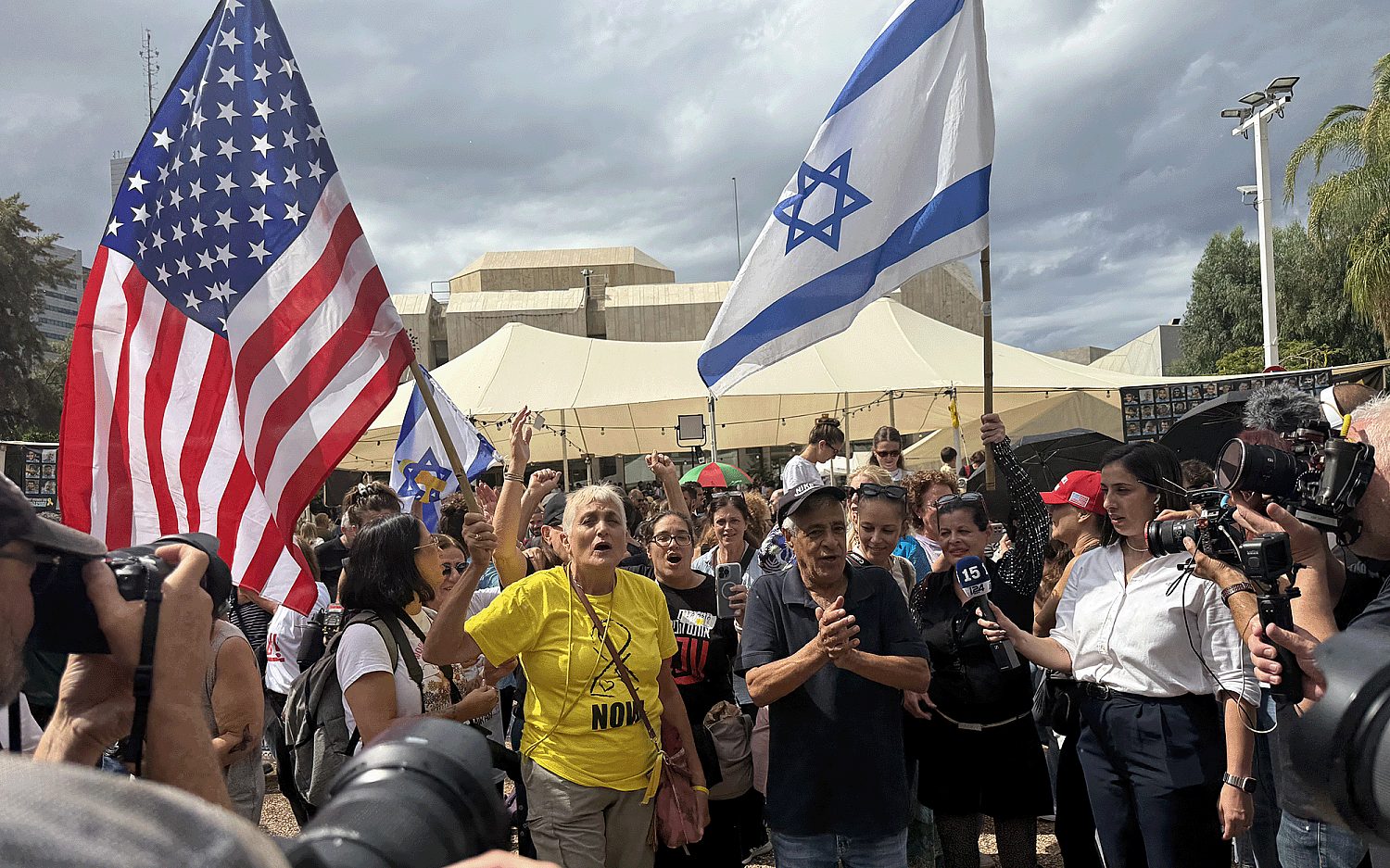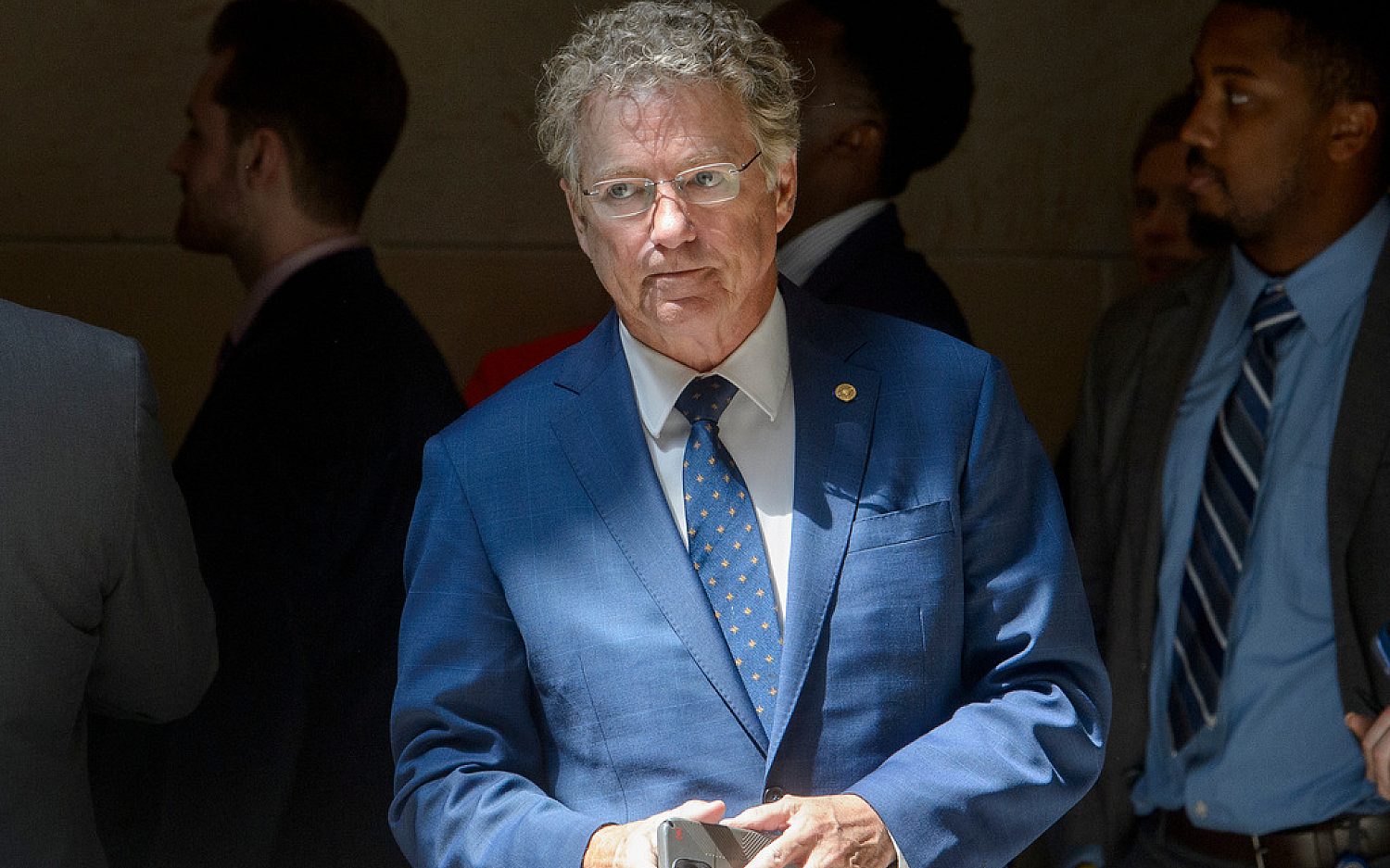Iraqi Christians plead for help from Congress
Witnesses recount ISIS atrocities against people and historic sites
WASHINGTON—An Iraqi nun pleaded with House lawmakers on Wednesday to stop ongoing “cultural and human genocide” at the hands of Islamic militants in the Middle East.
“ISIS has and continues to demolish and bomb our churches, cultural artifacts, and sacred places,” said Sister Diana Momeka during an emotional House Foreign Affairs Committee hearing. “We have realized that ISIS’ plan is to evacuate the land of Christians and wipe the earth clean of any evidence that we ever existed.”
Momeka appeared at the proceeding with three other witnesses of ISIS atrocities: Hind Kabawat, a Syrian Christian who works for George Mason University, Katharyn Hanson, an archeologist with the University of Pennsylvania, and Jacqueline Isaac, vice president of Roads of Success, a California-based non-profit promoting human rights in the Middle East. The women urged Congress to increase humanitarian aid, arm opposition forces, and take action to preserve at-risk historic sites and artifacts.
Momeka’s appearance came after the U.S. State Department initially denied her visa request to come testify but then relented under public pressure. Momeka, a native of Qaraqosh who has been displaced twice, offered articulate eyewitness testimony, including stories of raped women, traumatized children, and mass human displacement.
“[When] you lose your heritage, your culture, you lose your identity,” she said. “Today that’s how we see ourselves. Our history is gone. We feel homeless. … It has been a year, and Christian Iraqi citizens are still in dire need of help.”
Momeka estimated less than 100 Christians remain in Mosul, a northern Iraqi city that had more than 1.5 million residents before ISIS seized control in 2014. She said militants informed Christians they could convert to Islam, pay an exorbitant tax, or leave their cities.
Some members of the Yazidi religious minority weren’t even allowed to leave, according to witnesses, who said ISIS has targeted the group for extinction. Isaac called the extermination “systemic” and “barbaric.”
Isaac urged lawmakers to increase humanitarian assistance for millions of refugees and provide weapons, support, and training to the military forces of the Kurdistan Regional Government. “It’s not about them—it’s about all of us,” she said. “They’re fighting for the entire world.”
Rep. Ed Royce, R-Calif., said the committee has been pushing the administration to arm the underequipped Kurdish military, but to no avail.
“For whatever reason, the weapons dribble in,” he said. “This is wrong. This is immoral.”
Archeology concerns played a central role in the hearing and drew bipartisan interest.
“We’re committed to saving lives, but also saving history,” said Rep. Eliot Engel, D-N.Y., the committee’s top Democrat. Lawmakers decried the destruction and looting of historical sites and artifacts—some of which ISIS has sold on the black market to fund its activities.
Witnesses praised the Protect and Preserve International Cultural Property Act, which unanimously passed out of committee last month. The bipartisan legislation would build cohesion among U.S. agencies working separately to preserve international heritage and eliminate financial incentives for ISIS and other groups to loot historically important sites and items.
On Wednesday, Rep. Bill Keating, D-Mass., filed the Prevent Trafficking in Cultural Property Act, a bill aimed at curbing terrorists’ ability to physically bring stolen property across U.S. borders.
Members of both parties criticized the administration for not taking a more aggressive approach to combat religious persecution in the Middle East. Reps. Brad Sherman, D-Calif., and Chris Smith, R-N.J., called attention to congressional action the administration has ignored. Smith said it’s a “revelation of priorities” that President Barack Obama has not named a special envoy for religious minorities in the Middle East and South Central Asia since Congress created the post last year: “I find that appalling.”
In the meantime, Momeka said her people are looking to the United States for help. She said they remain hopeful they will be able to return to their homes.
“We were displaced, but we feel the hand of God is still with us,” she said. “In the midst of this suffering, we feel God holding us.”
An actual newsletter worth subscribing to instead of just a collection of links. —Adam
Sign up to receive The Sift email newsletter each weekday morning for the latest headlines from WORLD’s breaking news team.





Please wait while we load the latest comments...
Comments
Please register, subscribe, or log in to comment on this article.